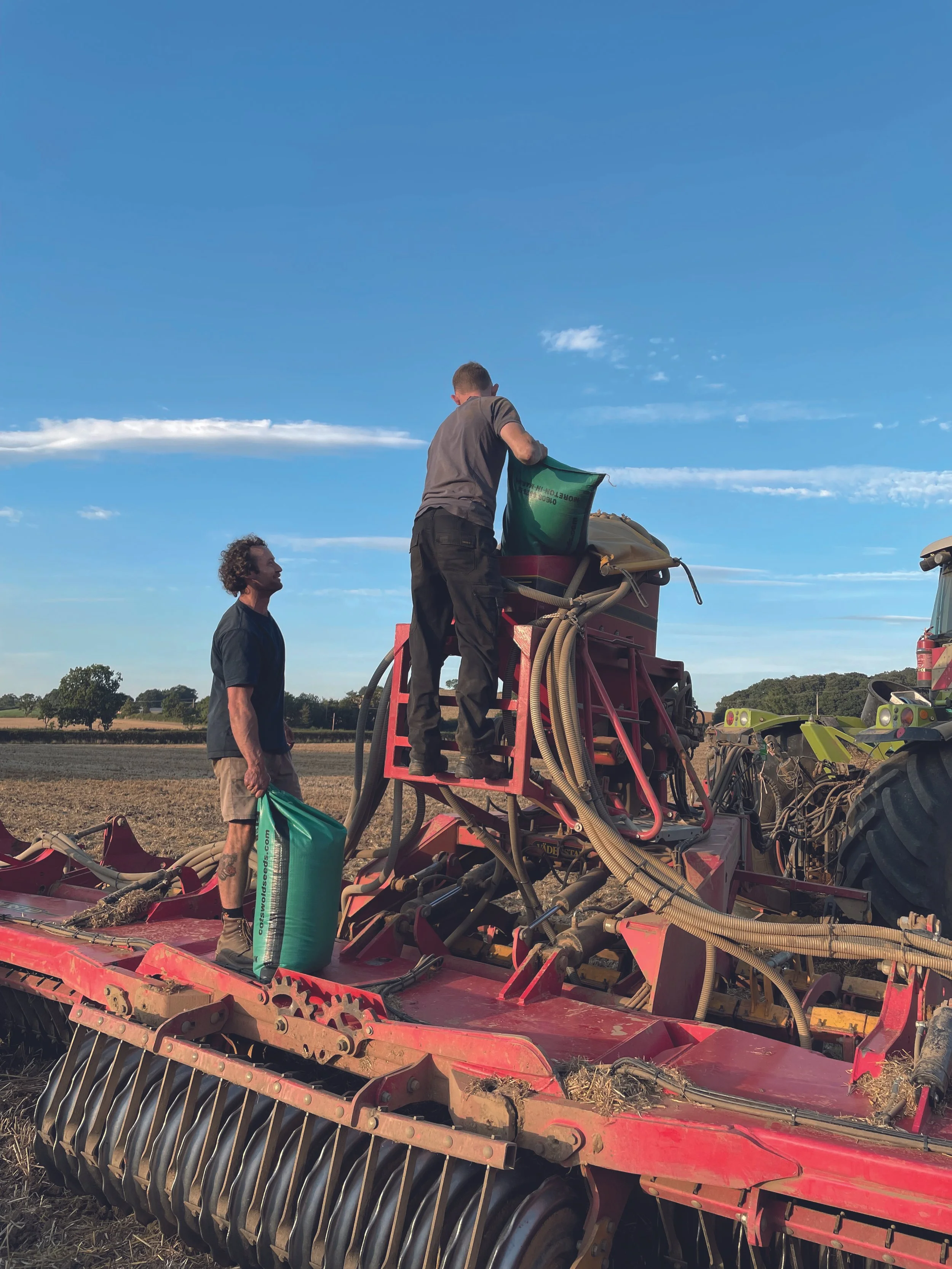Having seen our plants grow stronger and healthier at a horticultural level the next step was to take it on farm. The challenge here was how to scale it so that we could feed large areas of land with microbial compost rather than chemical fertiliser. We also wanted to provide a solution for those that were not able to compost themselves by providing them with small bags of compost inoculum to grow more nutrient dense food and sequester carbon.
We started on farms local to Wardington where farmers Charles Buckley and George Page patiently let us dive into the unknown and start the process of making compost on a larger scale. Using an Avant and Gujer turner, we created long windrows of compost which matured in 6 to 8 weeks, were non-polluting and could fit into existing farm cycles.
Essentially, we layer up low windrows of carbon, nitrogen, fresh greens, finished compost, clay and water. All ingredients are organic, have no toxic, broadleaf spray aminopyralid and we ensure that all farmyard manure comes from animals fed wit no GM. We measure the windrows daily, regulating temperature, oxygen levels and moisture to ensure the best conditions for the proliferation of the microlife.
Our aim is to make a compost toolkit for farmers and growers. Many mistakes were made but we were determined that we made these rather than farmers. There are no second chances on busy, cash-conscious farms where banks and bottom-lines make decisions.
George would often swing by in his pick-up truck to check on progress, with a big smile and always willing to help–but not convinced this was any better than directly spreading farmyard manure (FYM) onto fields.
Our next stop in May 2021 was an unused dairy at Althorp, in Northamptonshire where we began testing Climate Compost on a 260 acre trial farm on the estate, and at Erth Barton in Cornwall guided by regenerative farmer, Tim Williams. At Althorp we began trials in autumn: we inoculated seeds with Climate Compost, then direct drilled 30 way multi-species grass and herbal leys with Climate Compost (both 5kg and 10kg CC per hectare), using a local contractor.
We muck-spread 15 tonnes of FYM per hectare comparing it with 5 tonnes of Climate Compost. Our initial results were quicker germination, stronger root growth and higher worm count (worms increased 10 times with CC compared to 3 times with FYM).
Looking Ahead
We are now partnering with The Organic Research Centre on the Feed The Soil Project, carrying out on-farm trials of how to feed the soil without chemicals. This will include looking at the practicalities and benefits of composting, bokashi, vermicast, johnson-su, biodynamics and microbes.



